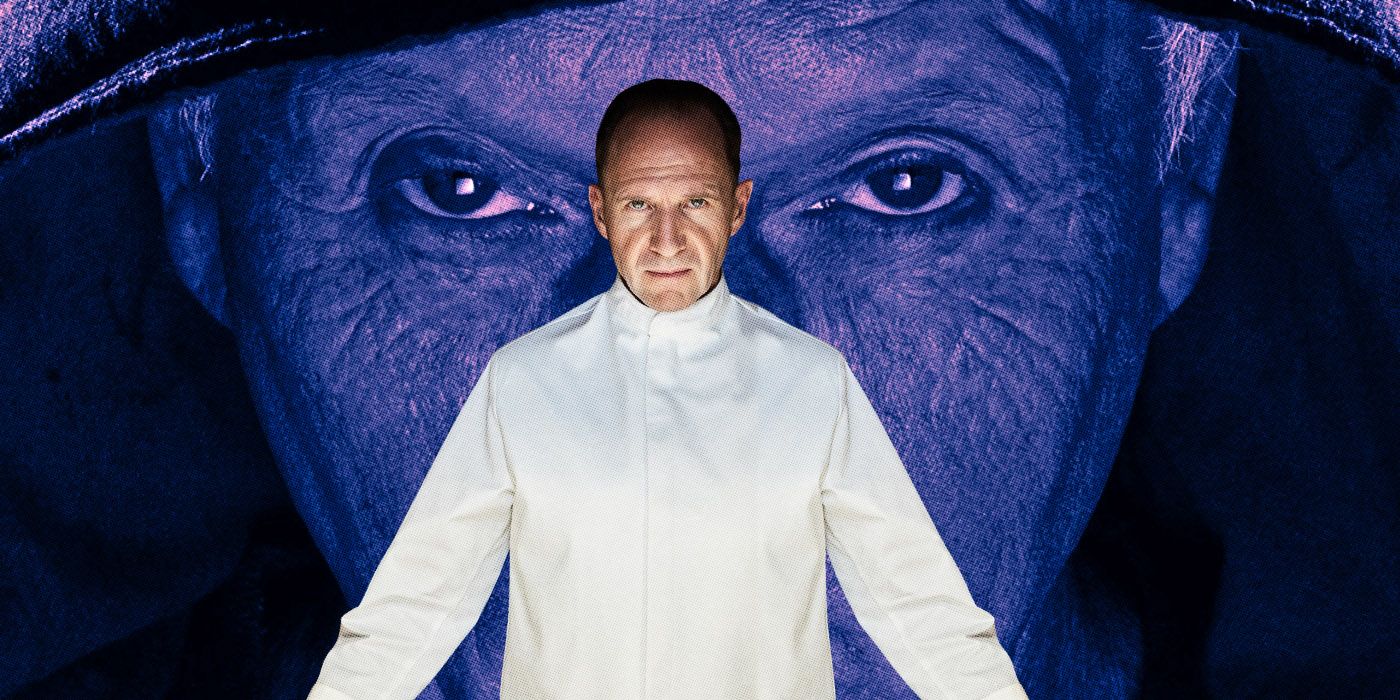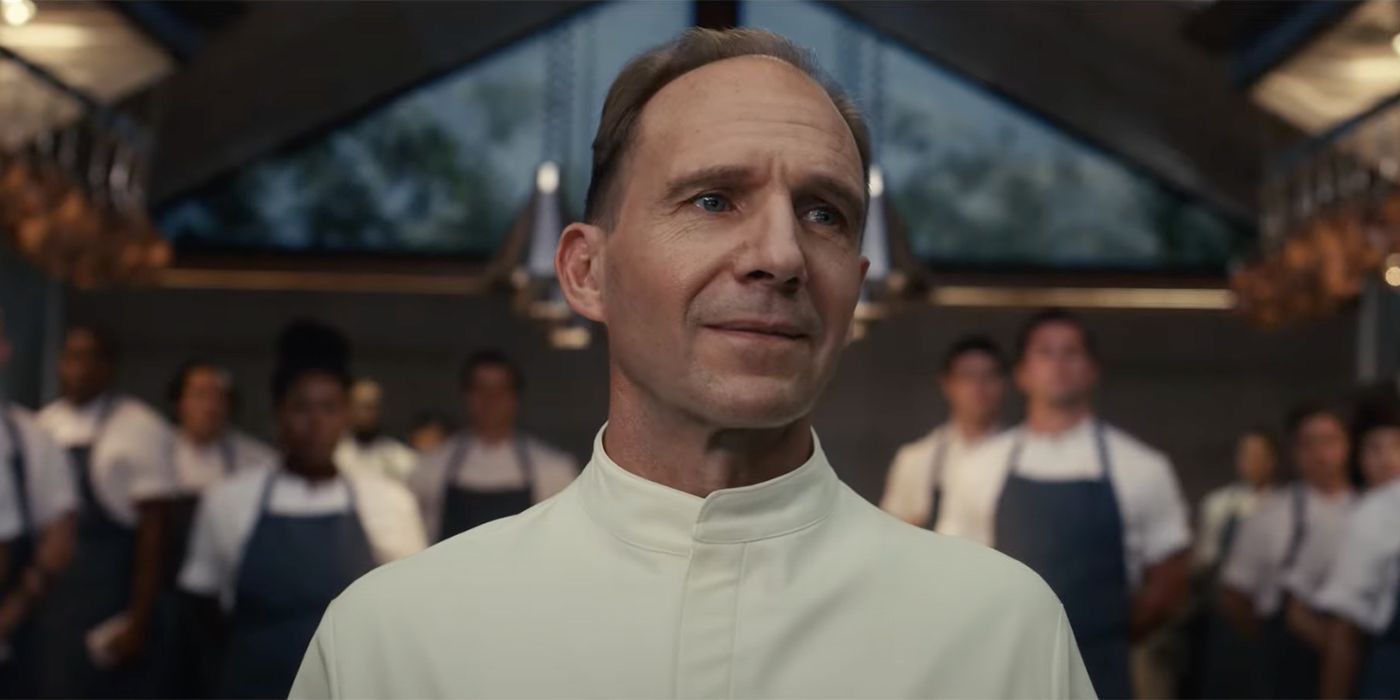The Big Picture
- Both Chef Julian and John Kramer have a twisted view of art and entertainment, finding pleasure in orchestrating dramatic presentations and monologues, as well as creating interactive games for their victims.
- Neither Chef Julian nor John Kramer see their actions as wrong, rationalizing their sadistic behavior as justified and necessary for their own twisted purposes.
- Despite their cruelty, both Chef Julian and John Kramer have moments of vulnerability that make them disturbingly human, drawing others in and blurring the line between perpetrator and victim.
The Menu and Saw are two movies you likely wouldn't expect to hear in the same sentence as they couldn't be more different. While The Menu leans more into the psychological thriller side of the horror genre, the Saw franchise is a direct torture porn horror flick designed to make you queasy. The Menu is sleek and polished, while Saw is grungy and grainy. They exist on two completely different plains, and yet they share one unique similarity between them that becomes hard to ignore once you see it, and that is their main characters. On the surface comparing Chef Julian (Ralph Fiennes) and John Kramer (Tobin Bell) sounds absurd, but when you get down to the nitty-gritty of their characters, there are some startling similarities.
They Both Have a Twisted View of Art and Entertainment
John Kramer's (or perhaps we should refer to him as Jigsaw in this case) whole shtick is that he wants to play a game with his victims. He wants a show that justifies his hero complex. Whether it be having them dip their hand into acid to retrieve a key or jumping into a pit full of used needles to search for an antidote, he's a twisted man who loves to watch the chaos unfold. Chef Julian may not be quite as intense or as sinister as that -- at least, not at first -- but he does love a dramatic presentation and monologue, and of course, a good game.
Kramer acts through cassette tapes and a creepy puppet to deliver his monologue and explain his twisted thoughts, and while they're undeniably wrong and sadistic, he has an uncomfortable charisma and confidence that exudes from him. Chef is similar in how he puts on a performance of sorts before each dish is served. He gives an in-depth explanation of the story behind each dish's creation and sometimes includes props as well (such as the scissors). But he doesn't just stop at giving a dramatic monologue with each new course, he also includes his dining patrons and his employees. 'The Mess' is the first time we see just how delusional Chef Julian has become in his craft and the first time you can truly see the similarities between him and Kramer. We watch as Chef humiliates his Sous Chef Jeremy, telling him and the entire restaurant that he will never be as good as him. Jeremy then takes out a gun and shoots himself, as orchestrated by Chef Julian.
That isn't where it ends though. One of the patrons tries to leave only to be cornered and have his finger chopped off for doing so. Then comes yet another interactive dish that echoes an earlier story told by Chef Julian, in which he says he stabbed his father with a pair of scissors when he was a child in defense of his mother. This course, called 'Man's Folly' is introduced by another Sous Chef named Katherine who reveals that she turned down the advances of Chef Julian and was thus ignored by him for eight months. She then stabs him in the leg and the course is served to the women diners only. And then there's the spontaneous addition of 'Tyler's Bullshit' in which Tyler is asked to cook for Chef and is promptly humiliated while doing so and after it's served. It's revealed later that he killed himself. On a less traumatizing but still mildly humiliating note, he also has the men play hide and seek for his own amusement. And even when he reveals his final plan, it's done through a delicate monologue while his team of fellow chefs get everything ready for the course. Chef Julian values the art behind his craft more than anything else and thinks that he is far above repercussions due to his talent and hierarchy over everyone else. Which brings me to my next point.
Neither Kramer Nor Chef Sees What They're Doing as Wrong
Chef is mysterious, cold, and a master at his craft, but he also harbors a twisted evangelical nature about him that slowly gets revealed as the film rolls on. You’re not led to believe he’s a bad man at first — a little strange? Sure, but not a bad person. And when his ultimate plan is revealed it’s done so after many brilliant monologues about food as an art and how his food tells a story. So his final course seems justified and sensible in his mind — he’s planned it all to a T and to him, it’s a natural conclusion. It’s all so reminiscent of how John Kramer thinks. He puts people who have made bad choices — no matter how big or small — into sadistic and nearly unbeatable traps. And while he surely garners some sort of sick pleasure from it, he reasons his actions as helping those he’s targeting, while calling out their wrongdoings and punishing them for it.
Chef Julian does similar by way of the tortillas he has sent to the tables, with each one being personalized to the dining patrons who receive them. They detail everything from an affair a man is having, to a list of all the restaurants closed down due to the food critic. Perhaps it doesn’t seem like much on the surface but when you take into account the entirety of the movie, after Chef’s plan has been revealed and the credits roll, it’s the first taste of how despicable his mindset is. He brought these people here with the intent of claiming their lives, and the tortillas are his twisted way of justifying his actions. It’s also shown in how he tells the actor (played by John Leguizamo) that he was invited simply because Chef hated his movie. Chef took the film as a personal attack since he wasted his day off seeing it, and thus believes Leguizamo’s character must die as a result.
It’s all those little moments in between the blatant cruelty Chef inflicts on his team of fellow chefs that show just how high his superiority complex has risen. And like Kramer, he doesn’t see anything wrong with what he’s doing, he truly believes everyone there deserves to be harmed in some way if only to learn a lesson. These are two men who are so severely out of tune with reality and see themselves as above everyone else, and like what they’re doing is Godly and helpful to society. But perhaps what’s most unnerving about them is how human they can be at times. They’re not always cold and ruthless, and when they let that deep-rooted vulnerability peek through, even for a moment, you can’t help but be sucked back in, and that's the most chilling similarity of them all.



